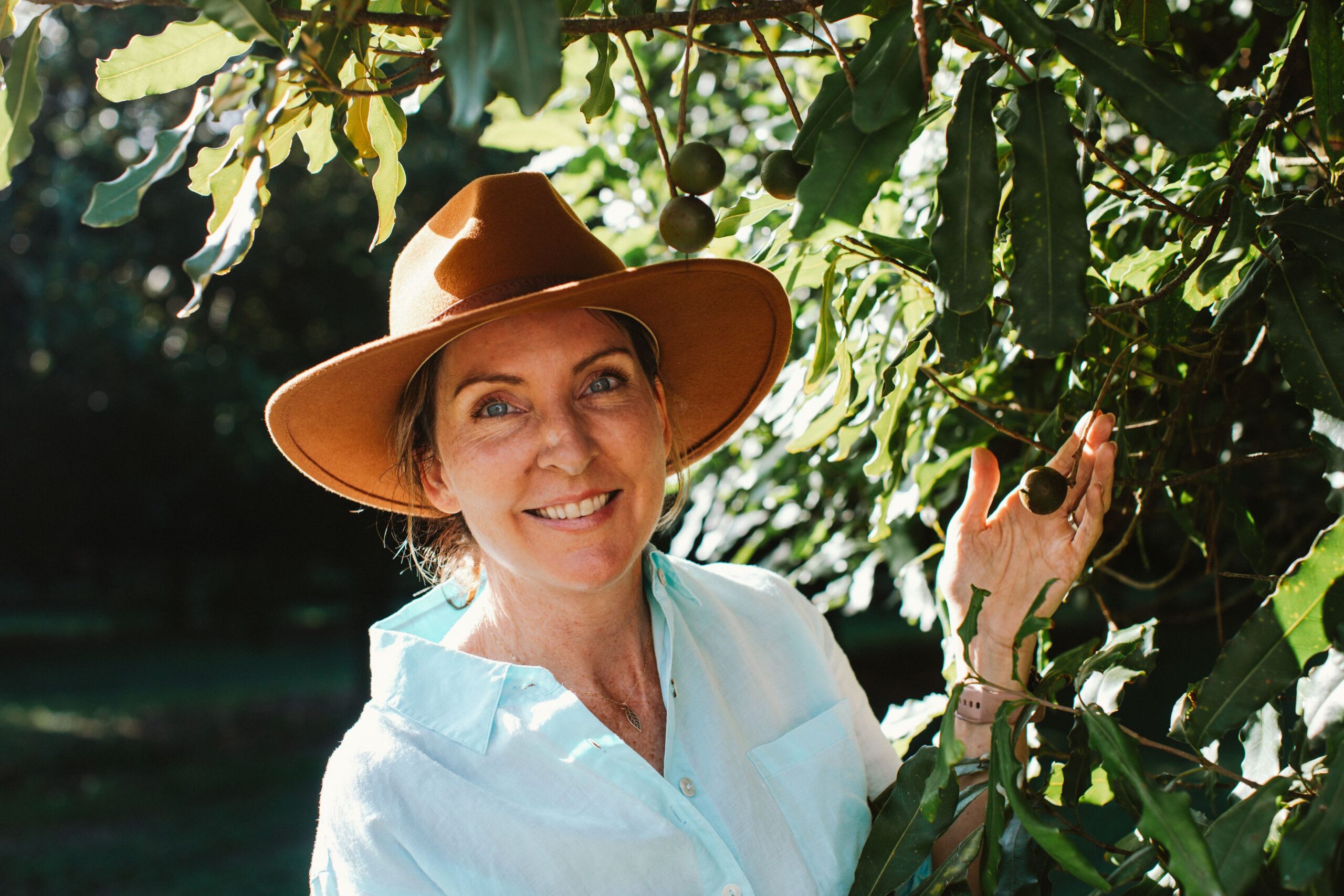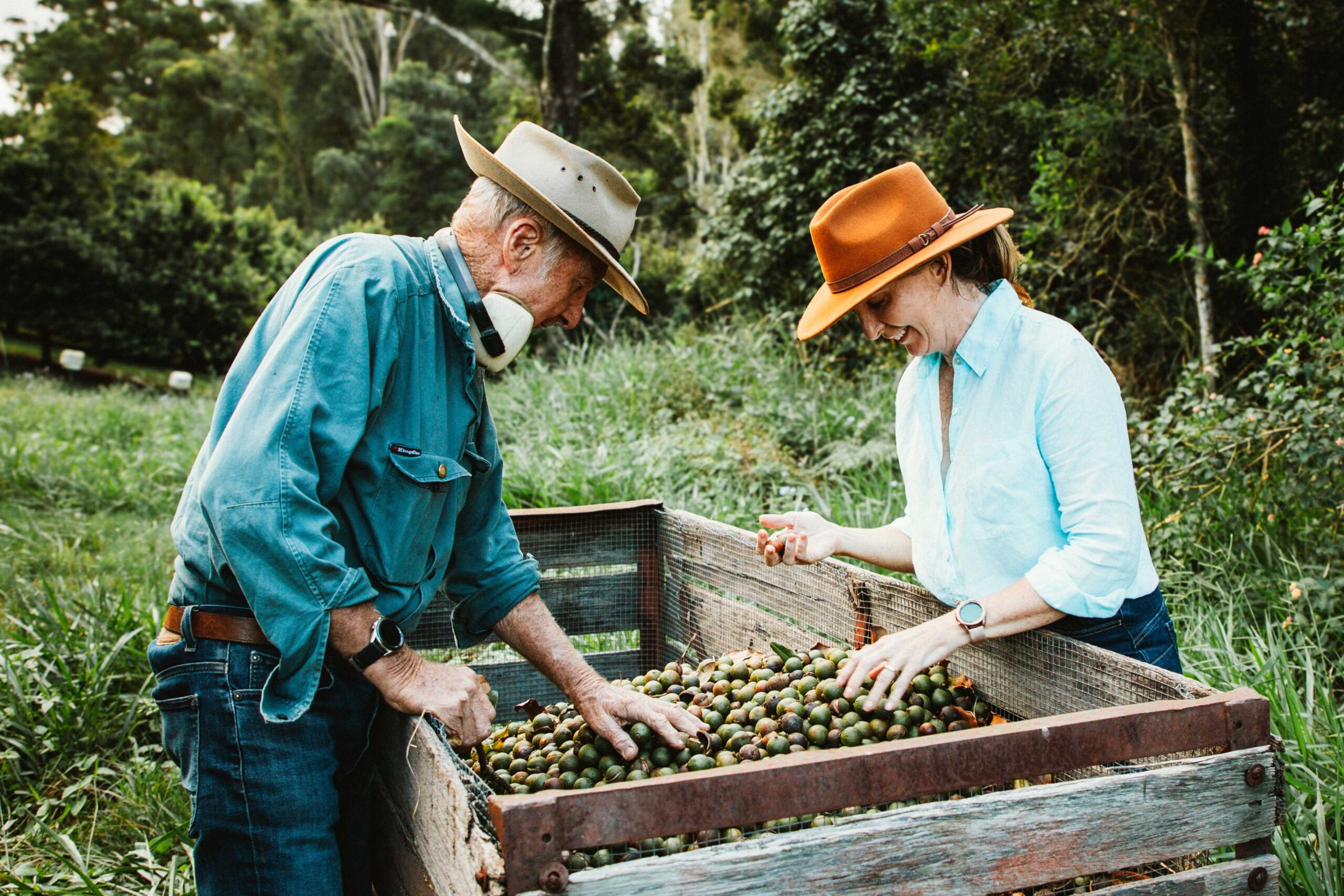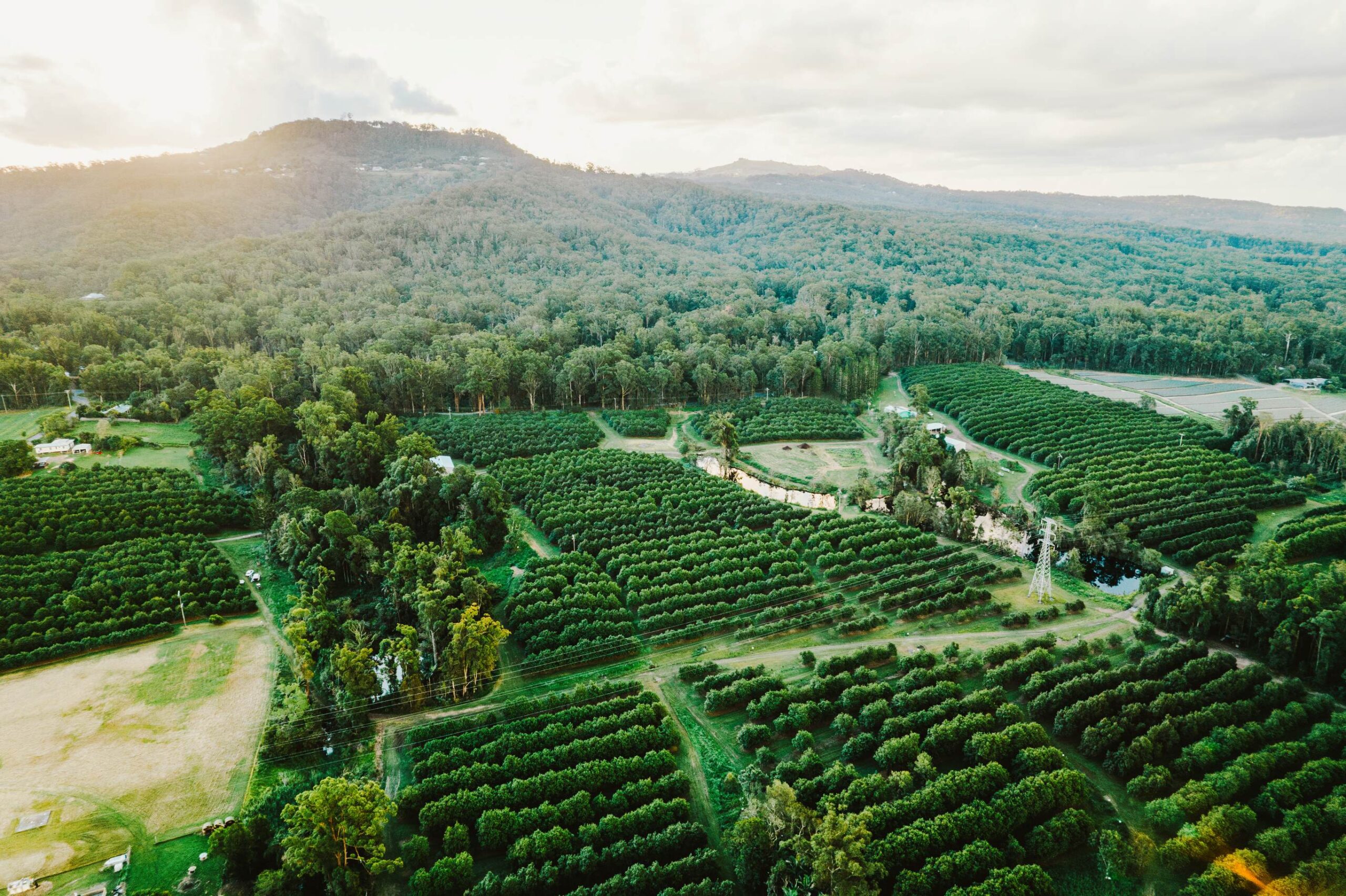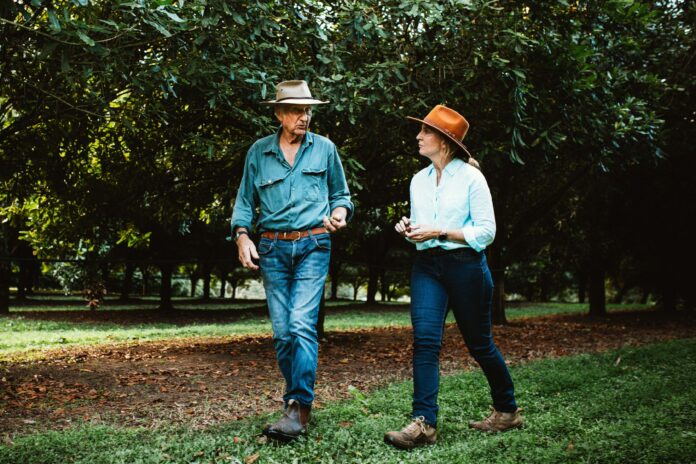When wandering through an orchard of flowering macadamia trees and watching native bees dart through the filtered afternoon sunlight, it’s easy to see why Diane Cheal left behind a life in the city to join her dad on the farm.
Beginning her career in academia, Diane completed a post-graduate degree and spent many years in Brisbane writing higher education curriculum for universities. But, as Diane so eloquently puts it, once a farmer’s daughter, always a farmer’s daughter.
“The more I worked in the city, the more I started to realise that walking around under macadamia trees is what I really enjoy the most. It feeds your soul,” she said.
“My dad bought the farm when he was in his 20s. It was originally a pineapple farm, but about two decades ago, he started putting in macadamia trees. Now, we’ve pulled out all of the pineapples and just farm macadamias.”
Diane and her father, Graeme Cheal, thoughtfully tend to 4500 trees in the Sunshine Coast hinterland – the ancestral home of the macadamia tree. Native to Australia, macadamias grow best with consistent sunshine, reliable rainfall and high-quality soil in a sub-tropical climate, making Diane and Graeme’s farm in Beerwah especially bountiful.

As educated and considerate farmers who prefer more natural agricultural methods, Diane says they are conscientious about trying to work with the land, not against it.
“One of the ways we do this is by making our own organic compost once a year. After our tree’s branches are lopped off, their trimmings get turned into wood chips and combined with some other secret herbs and spices,” she said.
“We mix it for a few months until it turns into really great feed for the macadamia trees. Under the tree and within the roots, the bugs, fungi, worms, and other good microorganisms are all fed by this compost. So that’s a lovely thing to do for the tree.”
Bees also play an important role in the production of macadamia nuts. In fact, many species of native stingless bees have been pollinating macadamia trees in the wild for thousands of years. To improve their harvest, Diane and Graeme built 400 hives by hand, allowing native bee species to frolic around the macadamias during peak flowering season in September.
In addition to Australian native stingless bees, Diane says they also have a beekeeper who visits the farm with European honeybees.
“These two species don’t seem to bother each other, and while the honeybees don’t pollinate as well as the natives, they both do different things for the trees and work really well together,” she said.
“The native stingless bees are especially important to us because they help to create a really good nut yield.
“We’re quite interested in exploring other ways to help pollinate the macadamia flowers. We have bees, but we’ve also got a few different colonies of microbats. At the moment, we actually have a research student on the farm doing her thesis on what specific breeds of microbats eat.
“Microbats are quite interesting animals – not only do they help get rid of the mosquitoes everywhere on the farm, but they also aid in the ecology and pollination of our macadamia trees as well.”

Of course, farmers know the unpredictability of nature more than anyone, with Diane and Graeme experiencing their fair share of ups and downs. In March 2022, their property was hit by an intense and violent hailstorm.
While the uproar lasted under half an hour, it devastated their farm, with more than 500 trees being uprooted and even flipped upside down.
In that short period of time, a full year’s crop of custard apples and avocados were lost, in addition to countless macadamias being knocked to the ground a month before they should’ve been.
Diane says the wonderful thing that happened after that, however, was the number of selfless macadamia farmers who dropped their tools, picked up their chainsaws, volunteered their staff, and drove over in utes to lend a hand over a series of four days.
“It was so heart-warming in the midst of this terrible tragedy. I think farmers, as a whole, really want to help others succeed,” she said.
“That’s the lovely thing about being in this industry. The weather is always going to be an inconsistent long-term friend for any farmer, so we all have to roll with the punches and help each other out.
“Sometimes it’s going to be raining when you have to pick up nuts, so you’re going to be sitting on a tractor in the rain getting wet, and it’s very uncomfortable and cold. Other times, you have to do work within a heat wave, but that’s farming.
“I think if you talk to anyone, regardless of what crop or animal they farm, they’ll tell you the same thing – we’re at the weather’s mercy, and you can’t fight that. It’s not a challenge so much as a begrudging acceptance that there’s something bigger than us at play.”
After naturally falling off the trees, Diane and Graeme collect the macadamia nuts, remove their outside husks, and then ship the raw material to Nutworks for processing.
Situated in Yandina, Nutworks has long been one of Australia’s premier macadamia nut processing plants and, in more recent times, has built a global reputation for delicious and innovative macadamia nut products sourced from local and sustainable farms across Australia.
Diane says they have a wonderful relationship with Nutworks, as they also support a myriad of other macadamia farmers in the area.
“Nutworks has always been good to us. We often get visited by Chris Fuller, the company’s macadamia grower liaison,” she said.

“He’s an entomologist and an agronomist and takes a keen interest in the way things are farmed, from what we are feeding our trees and the different sprays we use to the cycle of the local bugs.
“I love having Nutworks as our support team. It means a lot to have heartfelt people who you can count on. Farmers are a very good, honest, genuine, and helpful bunch, but we’re also quite isolated. Nutworks gives us the opportunity to meet, discuss, and compare notes with a group of like-minded individuals who share a common purpose and goal. The people I’ve met through Nutworks are the salt of the earth. They not only take interest in you as a farmer but also as a human being.”
A macadamia tree takes five years to grow before it is ready to harvest, and so the premium macadamia nuts many of us snack on at home are the result of years of thoughtful propagation from macadamia growers.
While some nuts have their shells removed and are roasted, flavoured, or used for confectionery, others are used for macadamia oil or sold with their shells still on.
Diane says that macadamia nuts are a good source of healthy fats, kind of like an avocado, and are an incredible plant-based food full of nutrients and antioxidants.
“Every now and then, we get invited to a great big function held by the Australian Macadamia Society,” she said.
“They make the most incredible assortment of cakes and slices, each made with macadamias that come from Aussie farms like ours. They’re all so delicious.
“Macadamias are such a versatile nut to use, not only in baking but also in savoury dishes.
“I think one of the coolest ways Nutworks has used our crop is when they released my personal favourite – chocolate-covered macadamias coated in 24-carat gold.
“That was beautiful, and I just had so much fun opening the bag. I’ve never eaten anything else covered in gold, but I would imagine everything tastes better that way.”
Diane and Graeme’s macadamia trees are currently nearing the end of their harvesting season and are just starting to flower due to the plentiful rainfall in the region. For next year, Diane says they are going to be focusing on planting more trees, taking care of the soil and supporting the orchard’s bountiful crop.
“Once the nuts start to come into season and after we’ve finished picking them up off the ground, it’s time for us to feed the earth and be really, really good to the ground and the soil,” she said.
“I simply love that, most days, I get to walk under the shade of the macadamia trees. I’ve worked in retail, and I’ve worked in academia, but now I get to work on the earth. I get to see nature at its finest, loudest, and most brash.
“I get to see kangaroos, cockatoos, worms, butterflies and bees. It’s so lovely, and it’s where I belong. Just me, the trees, and my dad.”
Want more free local news? Follow Sunshine Coast News on Facebook, LinkedIn and Instagram, and sign up for our FREE daily news email.





